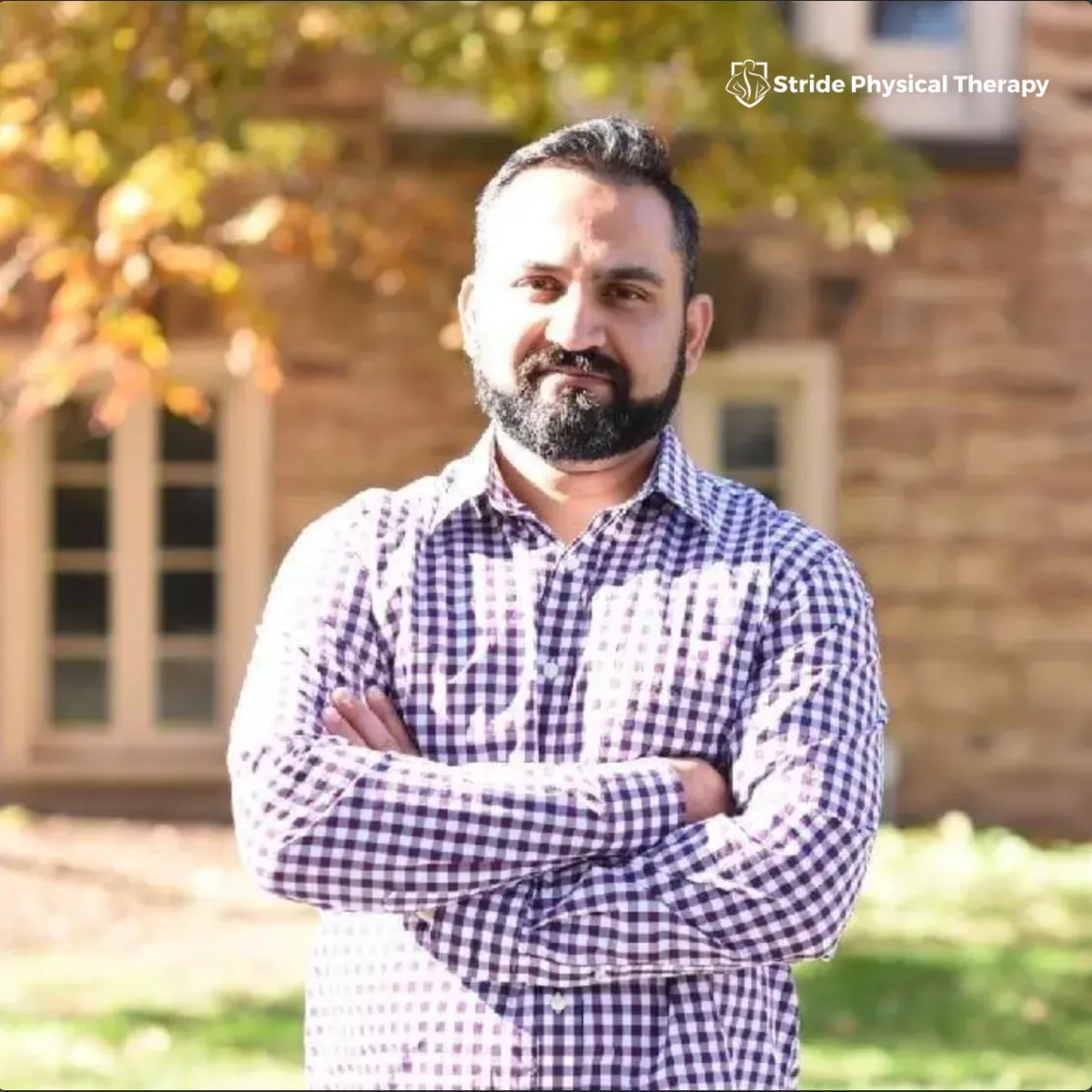Parkinson's disease makes everyday interactions challenging for those affected by this relentless condition that worsens over time. Our expert, board-certified neurologists and neurosurgeons, along with a specialized team in speech, occupational therapy, and nutrition, strive to enhance our patients' quality of life and autonomy. We are dedicated to guiding patients and their families every step of the way through their treatment journey.
Risk Factors for Parkinson’s Disease
Parkinson's disease arises from unknown origins, yet it may result from a mix of genetic aspects, like having relatives with the condition. It's more common in men and usually starts at age 60 or older. However, it can also occur before 40 in about 10% of instances.
Parkinson’s Disease Symptoms
Parkinson's disease symptoms vary from person to person; early signs might be subtle and overlooked. Initially, one might not swing their arms while walking or speak in a softer, mumbled tone. As Parkinson's progresses, since it's a disease that worsens with time, these symptoms will intensify.

Quick Links
FAQs
Signs and symptoms of Parkinson’s include:
1. Experience shakes and unintended shaking of arms, legs, and chin.
2. Feel muscle firmness and decelerated motions.
3. Notice a decrease in natural and reflexive movements.
4. Encounter balance issues and an unsteady gait.
5. Face feelings of depression and memory problems.
6. Observe alterations in speaking and writing abilities.
Parkinson's disease progresses in stages: mild, moderate, and advanced. Not everyone reaches the advanced stage. In the mild stage, symptoms are subtle and don’t interfere with daily activities, typically lasting 3-7 years. The moderate stage has noticeable effects, altering speech, making swallowing harder, increasing fall risk, and leading to small shuffling steps. In the advanced stage, treatments often don't work, and many require constant care, being confined to a bed or wheelchair.
Parkinson's disease develops through three stages: mild, moderate, and advanced, although not all patients experience the advanced phase. During the mild stage, which usually persists for 3-7 years, symptoms are minor and don't disrupt daily life. The moderate stage symptoms become more evident, affecting speech and swallowing, increasing the chance of falls, and causing small, shuffling steps. In the advanced stage, treatments tend to be ineffective and constant care may be necessary, often resulting in being bedridden or wheelchair-bound.
MEET YOUR RECOVERY TEAM

Kanwal Bhardwaj
PT, M.Sc.PT, CIMT, CMNT
Meet Kanwal Bhardwaj, PT, M.Sc.PT, CIMT, CMNT, the driving force behind Stride Physical Therapy in Freehold, NJ. With over 20 years of dedicated experience in the field, Kanwal brings a wealth of expertise and a passion for holistic healing to his practice. Kanwal's journey began with a Master of Science in Orthopedic Physical Therapy from Quinnipiac University in 2004. Over the years, he honed his skills and gained invaluable insights during 18 years of service in outpatient physical therapy offices. In 2014, fueled by a desire to deepen his understanding of patient care, he pursued a manual therapy certification (CIMT). This transformative experience allowed him to adopt a whole-body perspective, focusing on treating the root cause rather than just the symptoms...
At Stride Physical Therapy, we're dedicated to transforming lives. With a focus on the root cause of your condition, we're here to help you regain mobility and embrace an active lifestyle. What sets us apart? Our genuine passion for what we do. Let's stride towards a brighter tomorrow together.
Elevate Your Health with Our All-Inclusive Wellness Services!
Take one step closer to a pain-free life with Stride Physical Therapy! Discover medication and surgery-free solutions with our sessions.
Health Blog

A Physical Therapist’s Perspective on Chronic Back Pain
At Stride Physical Therapy, we see a lot of chronic low back pain and it’s something we know how to handle. Understanding what causes this pain and how you can prevent it is important to us, so we always make sure our patients and their families are well-informed. Remember, having chronic back pain doesn’t mean you have to accept it as a normal part of getting older. You can still experience less pain and enjoy improved mobility, regardless of how long your back has been bothering you. Book an appointment with Stride Physical Therapy to get a personalized consultation. Keep reading to uncover five key insights our physical therapy team has learned about chronic back pain.
1. Most People Will Experience Back Pain at Least Once
Research shows that the majority of people (up to 80%) will have at least one episode of back pain in their lifetime. While not everyone will suffer from long-lasting pain, many cases resolve within a few weeks without special medical care. However, underlying issues like inflexibility or poor body mechanics can persist, increasing the likelihood of recurring pain and injury. Consulting with a physical therapist early can help uncover and address these hidden factors, reducing the risk of conditions like muscle strains, joint misalignments, degenerative disc disease, disc herniation, and nerve impingement.
2. Most Risk Factors for Chronic Back Pain Are Preventable
Many back pain risk factors are preventable. This means reducing your risk of chronic pain and alleviating symptoms is largely within your control. Common preventable risk factors include:
Sedentary lifestyle
Excessive weight
Smoking
Poor posture
Physically demanding jobs that require frequent sitting, bending, twisting, heavy lifting, or exposure to vibration
Stress, anxiety, and depression
At Stride Physical Therapy, we take a holistic approach to treatment, addressing both physical and psychological factors to help you achieve long-term relief.
3. Exercise Often Improves Chronic Back Pain
Moving around with chronic back pain can be challenging, but participating in daily movement is crucial for pain management. Exercise keeps muscles and tissues strong, boosts circulation, reduces chronic inflammation, enhances mood, relieves stress, and helps maintain a healthy body weight. Activities like walking, cycling, and specific exercises to improve tissue healing, strength, flexibility, and endurance are proven effective. A physical therapist can help you develop a safe, effective, and enjoyable exercise program tailored to your needs and goals.
4. Surgery and Long-Term Medications Aren’t Always Necessary
Contrary to popular belief, conditions like herniated discs don’t always require surgery. Invasive procedures like spinal fusions are usually not the first option for chronic back pain. Research indicates that only about half of first-time back surgeries alleviate symptoms, and repeat surgeries have even lower success rates. Surgery also carries risks such as prolonged recovery time and post-operative complications.
Physical therapy is recognized as a first-line treatment for chronic back pain, often reducing the dependency on opioid medications. This makes physical therapy a safer, more cost-effective option.
5. Chronic Back Pain Can Improve Even Without Knowing the Exact Cause
Many cases of back pain are "idiopathic," meaning the exact cause is unknown. Imaging studies like MRIs often don’t correlate with a person’s symptoms. A physical therapist is trained to evaluate, diagnose, and treat spinal conditions. Even if the exact cause is unclear, physical therapy can still provide relief by addressing symptoms and contributing factors like poor posture, decreased hip and shoulder range of motion, and weak core muscles.
Ready to Make Chronic Back Pain a Thing of the Past?
If you're ready to reclaim your active life and start living with less pain, contact Stride Physical Therapy today. Our team is dedicated to helping you achieve long-term relief and improved function.


